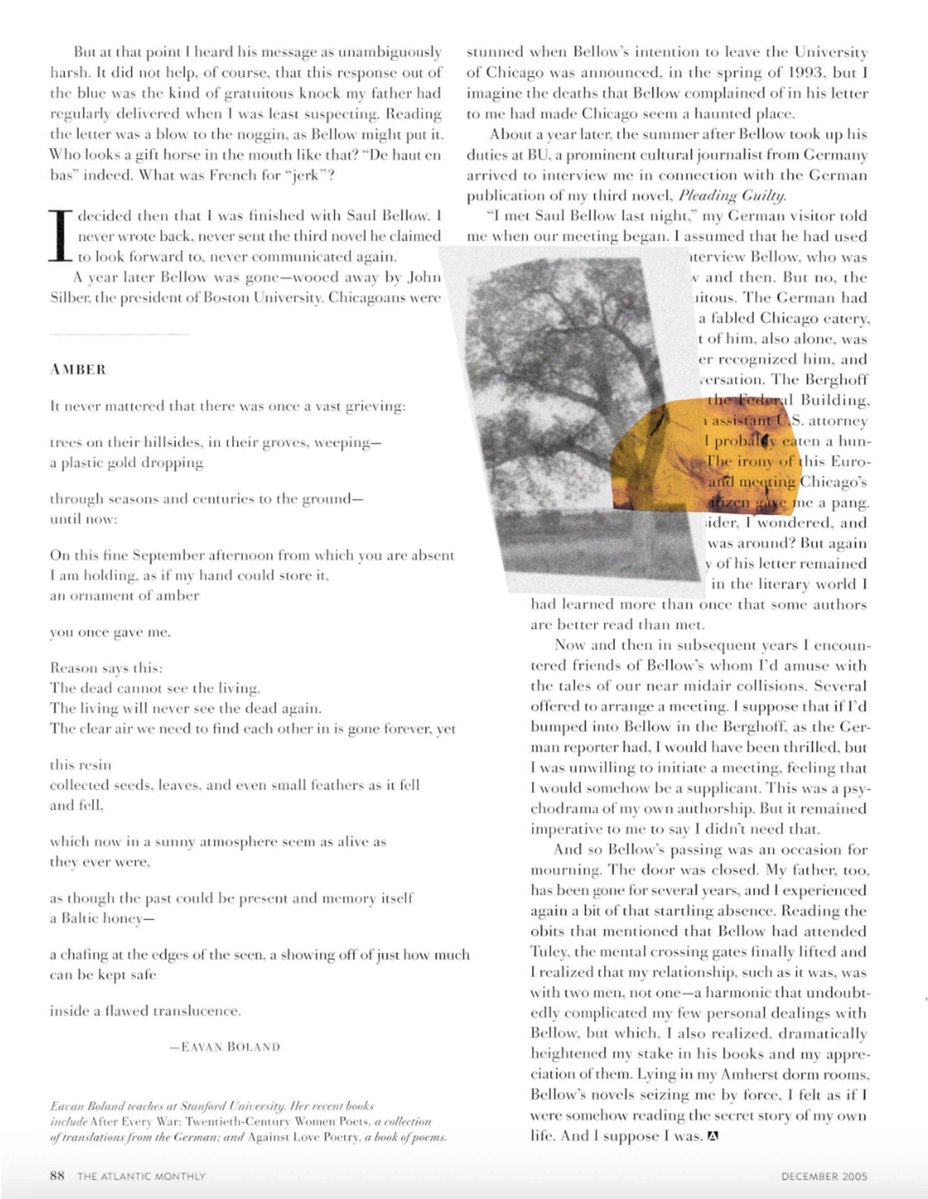Amber
A poem published in The Atlantic in 2005

Illustrations by Miki Lowe
Eavan Boland is known as a poet of history, but she might’ve taken issue with that label. As she told The Believer in 2014, she was interested not in history but in the past. Boland—who died in 2020 at age 75—saw the former as the official narrative, telling the kind of stories that showed up not only in school textbooks in her native Ireland but also in the poetry of her contemporaries. These writings didn’t seem to reflect the private lives of ordinary people. Her mother, for instance, had lived through some of the great hardships of her time but was sure to disappear into the past—which Boland called “a place of shadows and losses. A place of silences as well.” Her own life was slipping into that place too: “I was a woman in a house in the suburbs, married with two small children. It was a life lived by many women around me, but it was still not named in Irish poetry … when I was young it was easier to have a political murder in a poem than a baby.”
Boland’s work was a corrective—a way of catching some fragments of those supposedly unremarkable lives before they fell into the abyss. But in her poem “Amber,” published in The Atlantic in 2005, she seems to question her own obsession with memory. If “the living will never see the dead again,” then why does she try so hard to preserve the departed? If a piece of writing can’t reverse the current of time, she might have wondered, is it actually a false idol—a hollow effigy of the real people who once breathed and bickered and cried, a cruel way to freeze them and keep them trapped in a jar?
Her answer comes in the form of a bit of amber, suspending some seeds, leaves, and feathers. Of course those are only far echoes of the magnificent trees that stretched upward or the birds that swept the sky. But they can act as “a chafing at the edges of the seen,” reminding us how much exists outside the frame of the present. And paired with recollection—or, perhaps more so, imagination—a small fossil can resurrect a whole world.
You can zoom in on the page here.
What's Your Reaction?





















